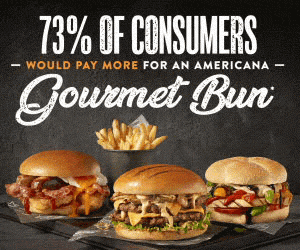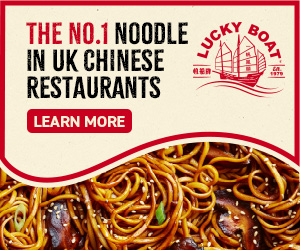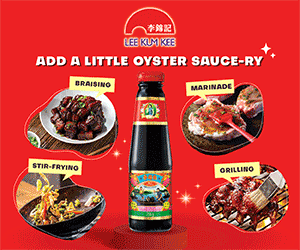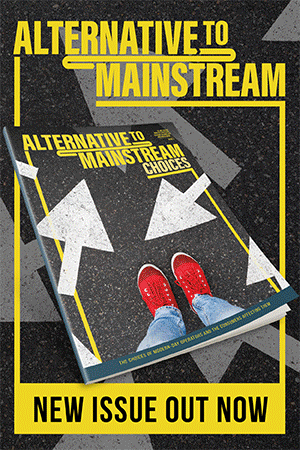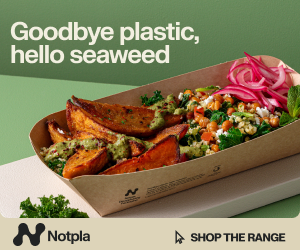The Big Interview: Bunsik
Jae Cho’s Bunsik is redefining Korean street food in the UK. But with an eye on branding and unstoppable ambition, he’s proving to be more than a TikTok sensation

Seventeen years ago, Jae Cho opened his first restaurant, a Japanese dining spot that marked the beginning of what would become a remarkable career. Today, he is a celebrated entrepreneur and the founder of the Maguro Group, an enterprise that encompasses everything from fine dining and beauty salons to bars and cafés. But it’s his latest venture, Bunsik, that has truly captured the public’s attention.
Bunsik, a Korean street food-inspired quick-service restaurant (QSR), is quickly becoming a household name in the UK, with long queues at every location and a growing presence on social media. For Cho, Bunsik represents more than just a successful business; it’s the culmination of years of experience and passion.
A journey of experimentation and growth
Reflecting on his early days, Cho describes himself as an entrepreneur who thrived on new ideas. “I opened my first restaurant about 17 years ago,” he recalls. “It was a Japanese restaurant, and from there, I kept experimenting. I launched a Korean barbecue restaurant, then a supermarket, a café, a coffee shop, a bar, and even a nail salon. I loved creating new concepts and seeing them come to life.”
Cho’s company, Maguro Group, which he founded in 2009, now includes a diverse array of brands: Maguro Sushi, GOGI, Bullgogi, Itaewon Burger and Chicken, Nature Republic, Pochawa Grill, and Cobalt Beauty. Despite this impressive portfolio, Cho admits that his early ventures weren’t always financially motivated. “In the beginning, I wasn’t chasing money. I was really enjoying opening something new all the time.”
But the pandemic forced a change in perspective. For the first time in years, Cho had the opportunity to step back and reflect on his journey. “During the pandemic, with restaurants closed and only takeaways allowed, I had more time to think about what I wanted to do for the rest of my life. I turned 40, and it hit me that I needed to focus on something sustainable, something that could grow beyond the initial excitement of opening a new place.” So, using his restaurant experience, he opted for a QSR brand that could scale, while remaining simple.
Born out of the pandemic
As trends changed, Cho wanted something that could offer fast food and be delivery-friendly. “I wanted something that could be easily prepared in the kitchen and wouldn’t require trained chefs or long-term team training. I also wanted to use chicken as it has better cost margins and the UK public loves chicken products,” he says.
“I knew I wanted to have a Korean brand, so I chose a product that Korea is known for — corndogs,” he says. But Bunsik doesn’t just do corndogs, the menu showcases the variety of Korean street food while being easy to replicate across locations. The menu at Bunsik reflects both Korean culture and modern dining trends. Alongside corndogs, customers can enjoy Korean fried chicken, Ddukbokki (spicy rice cakes), Kimbap (seaweed rice rolls), Ramyun (noodle soup), Bibimbap (mixed rice bowls), and bubble tea. The diversity of the menu allows people to experience more of Korea’s food culture, rather than just following social media trends. Something Cho notes his competitors were unable to do. “When I started Bunsik, many people tried to copy my corndogs, however as they only had limited menus, they have all now disappeared,” he says. “I wanted my menu to be diverse and I’ve learnt from my other brand, Itaewon Burger and Chicken, what customers are looking for,” he adds.
When it came to creating Bunsik, Cho wanted to use the corndog to establish an identity, but not be the only meal you can order — and this has proven to be successful. “After the corndogs, the Korean fried chicken is our next best seller. We want customers to experience more of the Korean street food culture through the food and drinks we offer,” he says.
For Cho, the appeal of street food lies in its accessibility and authenticity. “Street food is affordable, and most of the time, it tastes good,” he says. “It’s made with heart, not just mass-produced. In tough financial times, people can’t always afford to eat at restaurants, but they can treat themselves to street food they know will be tasty. That was one of the reasons I started Bunsik, as people are always looking for cheap street food on the go.”
From the third day of opening the first Bunsik location on Charing Cross Road back in 2021, the response was overwhelming. “We had queues outside the door almost immediately, and that hasn’t stopped,” says Cho. And while he admits to some hiccups, by the second store opening, he knew what customers wanted. “We’ve grown organically, opening one store at a time without any third-party investment. Today, we have seven branches, and each one has been met with the same enthusiasm.”










